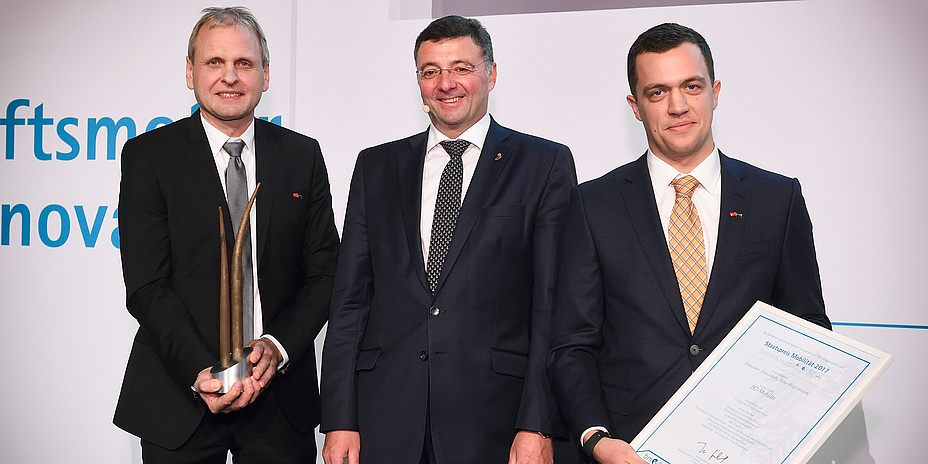In 15 years of intense research, the <link https: www.tugraz.at institute ceet forschung forschungsbereiche brennstoffzellenentwicklung _blank int-link-external external link in new>Fuel Cells and Hydrogen Systems working group led by Victor Hacker and the <link https: www.tugraz.at institute ceet home _blank int-link-external external link in new>Institute of Chemical Engineering and Environmental Technology developed a concept for the decentralised and climate-neutral production of high-purity hydrogen. Using locally available, renewable raw materials, such as biogas and gasified biomass, it is now possible to produce high-purity hydrogen efficiently and anywhere in small units, such as typical ship containers. It can then be used in mobility applications, for example, as an alternative fuel.
The work of many years culminated in the H2 Mobility project, in the course of which it was proved that the earlier theoretical concept can be implemented and carried out. Building efficient hydrogen filling stations in different places has now moved a big step nearer. The process is currently being developed into a commercial product together with partners from industry.
Viktor Hacker, Sebastian Bock and Robert Zacharias from the Fuel Cell and Hydrogen Systems working group present their work in the research magazine <link https: www.tugraz.at tu-graz services news-stories planet-research einzelansicht article nachhaltiges-konzept-zur-dezentralen-wasserstoffproduktion _blank int-link-external external link in new>TU Graz research.
The project is also presented in a short <link https: www.youtube.com _blank int-link-external external link in new>video in YouTube.
tim
In addition, the Graz mobility concept "tim - täglich. intelligent. mobil" was also awarded. The project was developed by Holding Graz in close cooperation with severel of TU Graz´s insitutes. tim is a web plattform, which combines public traffic, cycling, e-carsharing, e-taxis, rental cars and public charging stations.
Certificate of recognition
The research centre <link http: www.v2c2.at _blank int-link-external external link in new>Virtual Vehicle, which is closely connected to TU Graz, received a certificate of recognition for its Dependable Embedded Wireless Infrastructure project for the development of standards for wireless connections in road transport, rail, aviation and buildings.
Viktor HACKER
Assoc.Prof. Dipl.-Ing. Dr.techn.
Institute of Chemical Engineering and Environmental Technology
Inffeldgasse 25/C/II
8010 Graz
Phone: +43 316 873 8780
<link int-link-mail window for sending>viktor.hacker@tugraz.at
<link http: www.ceet.tugraz.at fuelcells _blank int-link-external external link in new>www.ceet.tugraz.at/fuelcells




